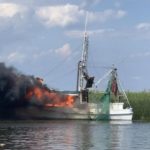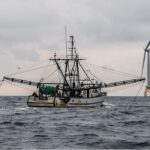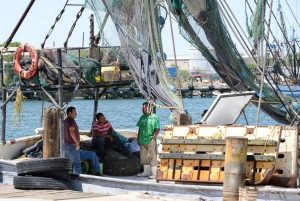Tag Archives: new-england-fishery-management-council
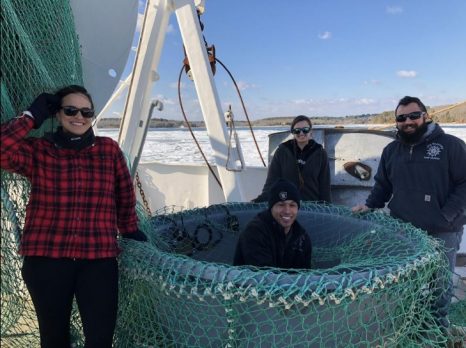
Don Cuddy – SMAST codfish counting innovation looks promising
Last December the New England Fishery Management Council voted to increase the amount of cod available to commercial fishermen in the Gulf of Maine by 39% for the 2018 fishing year. This is welcome news. New England fishermen have endured some lean years since 2013 when the cod quota was slashed by 78 percent after new data incorporated into the 2011 assessment indicated that the stock was lower than previously estimated-obviously a great deal lower. Estimating how many codfish might be out there at any given time is the greatest challenge facing fishery managers and the numbers have been subject of much controversy, with fishermen continually decrying the “best available science” as inadequate. >click to read< 19:25
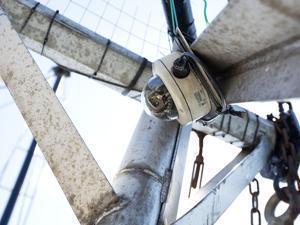
Education key to electronic reporting, monitoring systems
In a perfect world, Steve Kennelly sees the New England Fishery transitioning to electronic reporting within the next year. “There’s no reason why that group can’t be formed pretty soon,” the director of IC Independent Consulting said. The next step would be implementing electronic monitoring within 3 to 4 years. “It’s silly to talk anywhere beyond five years out” because of how fast technology continues to evolve, Kennelly said. The New England Fishery Management Council, which concluded two days of meetings on Wednesday in Portsmouth, New Hampshire, resides in an imperfect world, though. >click here to read< 18:34 
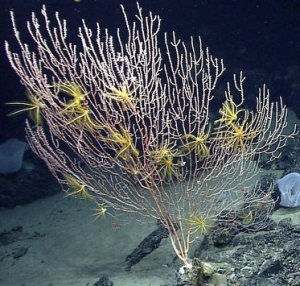
Feds vote to protect more corals in Atlantic Ocean
Federal fishing regulators on Tuesday approved a compromise they said would expand the amount of coral habitat preserved in the Atlantic Ocean while also protecting fishing interests. The New England Fishery Management Council voted on coral protections in an area south of Georges Bank, which is one of the most important commercial fishing areas in the Northeast. The decision came about seven months after the council approved protections in another key New England fishing area, the Gulf of Maine, in June. >click here to read< 17:50 
New England Fishery Management Council meeting January 30-31, 2018 in Portsmouth, NH
The New England Fishery Management Council will be meeting at the Sheraton Harborside, Portsmouth, NH . To read the final agenda, click here Register for webinar click here to listen live 14:34
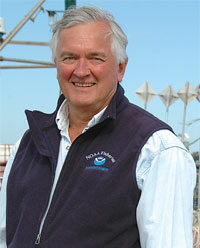
John Bullard: SectorIX board’s failure to act stopped its fishing
For New Englanders, Atlantic cod is not just another fish. The Sacred Cod that hangs in the Massachusetts State House is a testament to the cod’s place in our culture and history. For centuries, we fished for cod, as we watched the stock decline, we tried various ways to protect the resource this is considered as much a birthright as a commodity. In 2009, the New England Fishery Management Council under the Magnuson-Stevens Act, agreed to try a system called “catch shares” which worked well on the West Coast. click here to read the op-ed 20:52 
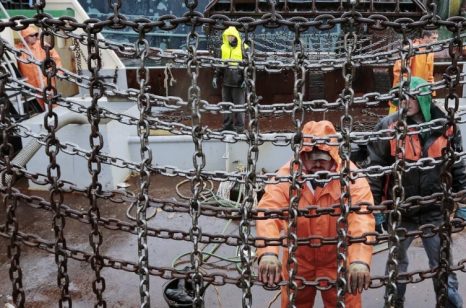
“Groundbreaking” Fish Protection Plan in Place
On Wednesday, January 3, the National Marine Fisheries Service (NMFS), also known as NOAA Fisheries, informed the New England Fishery Management Council that it had “approved the majority” of the Council’s Omnibus Essential Fish Habitat Amendment 2 (OHA2). The approved provisions include two actions that have a direct impact on Framework Adjustment 29 to the Atlantic Sea Scallop Fishery Management Plan, which, among other measures, contains 2018 fishing year specifications and 2019 default specifications for the scallop fishery. click here to read the press release 17:35
“Groundbreaking” Fish Protection Plan in Place – click here to read the story
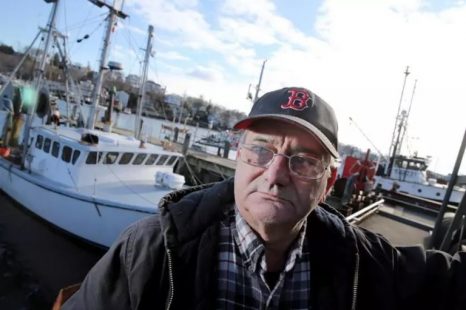
PFD’s: Fishing is a deadly business, but many fishermen won’t wear life preservers
One rogue wave or false step, an ankle caught in a line, is all it takes to cast a fisherman overboard. But those risks have never been enough to convince Rick Beal that it’s worth wearing a life preserver. Even though he has never learned how to swim. Commercial fishing ranks among the most dangerous professions, but fishermen — fiercely independent and resistant to regulations — have long shunned life preservers, often dismissing the flotation devices as inconvenient and constraining. click here to read the story 14:46 
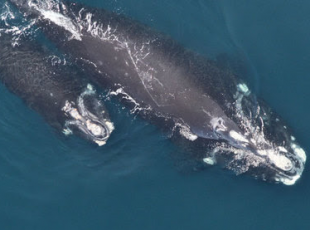
Officials: Whales, After Deadly Year, Could Become Extinct
Officials with the federal government say it’s time to consider the possibility that endangered right whales could become extinct unless new steps are taken to protect them.,,, The situation is so dire that American and Canadian regulators need to consider the possibility that the population won’t recover without action soon, said John Bullard, the Northeast Regional Administrator for NOAA Fisheries. click here to read the story 09:39
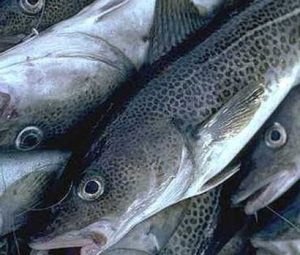
Fisheries council boosts Gulf of Maine quotas for cod, haddock, pollock
The New England Fishery Management Council voted to increase cod and pollock quotas for 2018, a move that is expected to benefit New England’s fishing industry. The council passed a rule Thursday that sets new quotas and has a number of other groundfish adjustments. The species with substantial quota increases are Georges Bank cod, Gulf of Maine cod, Gulf of Maine haddock and pollock. The redfish quota will rise by 5 percent. click here to read the story 10:03
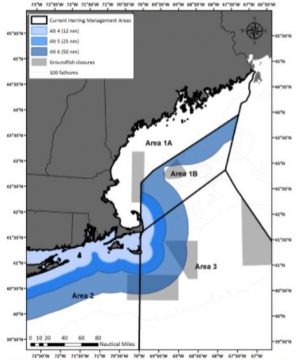
Atlantic Herring: Council Votes to Send Draft Amendment 8 Out to Public Hearing With No Preferred Alternatives
The New England Fishery Management Council today voted to send Draft Amendment 8 to the Atlantic Herring Fishery Management Plan out to public hearing without selecting any “preferred” alternatives. Given the wide range of opinions expressed by many stakeholders about this action, the Council is expecting a large degree of public engagement during the hearings, which will be held in early 2018. The Council will make final decisions later in the year after considering all public comments. The amendment is divided into two major components. ABC Control Rule, and Potential Localized Depletion and User Conflicts click here to read the press release 19:19

New England Fishery Management Council Meeting December 5-7, 2017 in Newport, RI
The New England Fishery Management Council will be meeting at the Hotel Viking, 1 Bellevue Avenue, Newport, RI 02840. To read the final agenda, click here Register click here to listen live 16:57
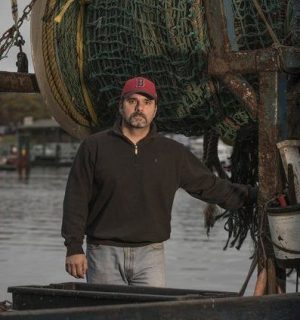
Fishermen to managers: Our voices are ignored
The New England Fishery Management Council sent its program review roadshow to Gloucester on Tuesday night to gather opinions on the council’s performance and the fishery managers were not spared the lash. The comments delivered Tuesday night at the sparsely attended meeting at the state Division of Marine Fisheries Annisquam Station facility certainly were not new, at least not to anyone who has spent any time speaking with local fishermen about life under the regulatory gaze of the council. They revolved around a strong belief among local fishermen that management decisions affecting the fishery are made well before the council convenes its public meetings and the scientific data and on-the-water-expertise of local fishermen are ignored or demeaned when it comes to forming policy. click here to read the story 21:37
NEFMC Undertakes Independent Review to Assess Past Performance and Solicit Suggestions for Improvement
 The New England Fishery Management Council is undergoing an independent review to: (1) assess past performance; (2) gather feedback on strengths and weaknesses of the Council process and operations; and (3) identify potential areas for improvements. Stakeholder input is critical to this review. The Council is encouraging commercial and recreational fishermen, industry leaders, fishery managers, members of non-governmental organizations, and other stakeholders to participate in the effort. ONLINE SURVEY – Port meetings from Maine to New Jersey click here to read the information 21:30
The New England Fishery Management Council is undergoing an independent review to: (1) assess past performance; (2) gather feedback on strengths and weaknesses of the Council process and operations; and (3) identify potential areas for improvements. Stakeholder input is critical to this review. The Council is encouraging commercial and recreational fishermen, industry leaders, fishery managers, members of non-governmental organizations, and other stakeholders to participate in the effort. ONLINE SURVEY – Port meetings from Maine to New Jersey click here to read the information 21:30
Little hope in latest evaluations of codfish – NEFMC SSC Meeting, October 23-24, 2017, Live Streaming Information
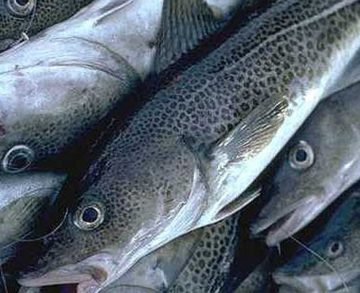 The completed operational assessments to help determine 2018-2020 groundfish quotas do not appear to be any more optimistic about the state of Gulf of Maine cod than those that effectively shuttered the fishery in the fall of 2014. The New England Fishery Management Council’s science and statistical committee is set to meet Monday and Tuesday in Boston to review the assessments for 19 groundfish species and finalize its catch recommendations to the full council. click here to read the story 07:31
The completed operational assessments to help determine 2018-2020 groundfish quotas do not appear to be any more optimistic about the state of Gulf of Maine cod than those that effectively shuttered the fishery in the fall of 2014. The New England Fishery Management Council’s science and statistical committee is set to meet Monday and Tuesday in Boston to review the assessments for 19 groundfish species and finalize its catch recommendations to the full council. click here to read the story 07:31
NEFMC SSC Meeting, October 23-24, 2017, Live Streaming Information – Meeting materials (click here) Online access to the meeting (click here)
NEFMC commitee votes to protect corals in Gulf of Maine
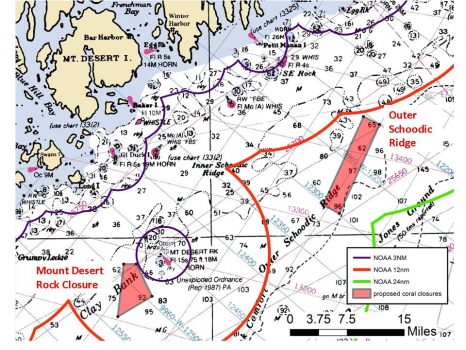 Federal regulars have decided to protect two areas in the Gulf of Maine that are home to slow-growing corals. The protected areas encompass almost 40 square miles and are called Outer Schoodic Ridge and Mt. Desert Rock. The areas would still be open to lobster fishing but not to bottom trawling. A committee of the New England Fishery Management Council voted on the protections on Thursday. click here to read the story 14:43
Federal regulars have decided to protect two areas in the Gulf of Maine that are home to slow-growing corals. The protected areas encompass almost 40 square miles and are called Outer Schoodic Ridge and Mt. Desert Rock. The areas would still be open to lobster fishing but not to bottom trawling. A committee of the New England Fishery Management Council voted on the protections on Thursday. click here to read the story 14:43
Many fishermen believe Stokesbury saved the scallop industry
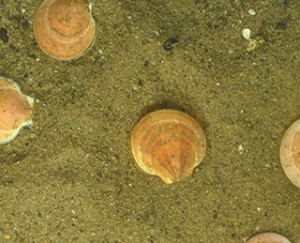 Well, I guess that I had better start writing some of this stuff down, as it seems that my memory is getting fuzzier by the day. Not an uncommon affliction for an old fisherman, who has been put ashore, but who still has enough recall to remember some things that are just too important to allow to fade into obscurity! I had been a scalloper out of New Bedford for 32 years, both as a deckhand, and as a captain of several high-line scalloper vessels. Over all those years there were several trips that stay relatively fresh in my mind’s eye, but one of the most important and fulfilling ones actually occurred after I came ashore. By Jim Kendall click here to read the story 21:55
Well, I guess that I had better start writing some of this stuff down, as it seems that my memory is getting fuzzier by the day. Not an uncommon affliction for an old fisherman, who has been put ashore, but who still has enough recall to remember some things that are just too important to allow to fade into obscurity! I had been a scalloper out of New Bedford for 32 years, both as a deckhand, and as a captain of several high-line scalloper vessels. Over all those years there were several trips that stay relatively fresh in my mind’s eye, but one of the most important and fulfilling ones actually occurred after I came ashore. By Jim Kendall click here to read the story 21:55
Gloucester Fishermen to council: Trust in data needed
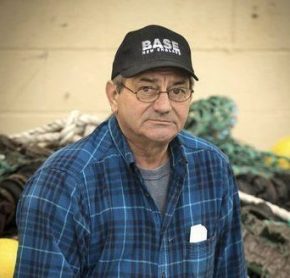 One by one, the Gloucester fishermen settled in front of the microphone for those with something to say to the New England Fishery Management Council and, one by one, they delivered their thoughts. Some of the remarks, such as those from Tom Orrell of Yankee Fleet and Paul Vitale, captain of the Angela & Rose, were short and to the point. Orell wanted to know why the for-hire boats faced so many restrictions in the Gulf of Maine and Vitale simply wants more fish quota. Now. Joe Orlando of the Santo Pio talked science and cod, while longtime fishermen Al Cottone and Rick Beal (powerful comment) adopted more philosophical tones, speaking to the council on the need for a two-lane channel of trust and truth. click here to read the story 20:59
One by one, the Gloucester fishermen settled in front of the microphone for those with something to say to the New England Fishery Management Council and, one by one, they delivered their thoughts. Some of the remarks, such as those from Tom Orrell of Yankee Fleet and Paul Vitale, captain of the Angela & Rose, were short and to the point. Orell wanted to know why the for-hire boats faced so many restrictions in the Gulf of Maine and Vitale simply wants more fish quota. Now. Joe Orlando of the Santo Pio talked science and cod, while longtime fishermen Al Cottone and Rick Beal (powerful comment) adopted more philosophical tones, speaking to the council on the need for a two-lane channel of trust and truth. click here to read the story 20:59
Atlantic Herring: Council Discusses Amendment 8 ABC control Rules; Passes on Picking“Preferred Alternative”
 The New England Fishery Management Council yesterday discussed the list of potential acceptable biological catch (ABC) control rules outlined in Draft Amendment 8 to the Atlantic Herring Fishery Management Plan. The document contains nine new control rule alternatives plus the standard “no action.” After considerable debate and a review of the varying impacts of each option, the Council declined to pick a “preferred alternative.” Instead, the Council intends to wait to hear the full range of public comments during future public hearings before indicating any preferences. ABC control rules define how catch or fishing mortality changes with stock size. Click here to read the story 16:51
The New England Fishery Management Council yesterday discussed the list of potential acceptable biological catch (ABC) control rules outlined in Draft Amendment 8 to the Atlantic Herring Fishery Management Plan. The document contains nine new control rule alternatives plus the standard “no action.” After considerable debate and a review of the varying impacts of each option, the Council declined to pick a “preferred alternative.” Instead, the Council intends to wait to hear the full range of public comments during future public hearings before indicating any preferences. ABC control rules define how catch or fishing mortality changes with stock size. Click here to read the story 16:51
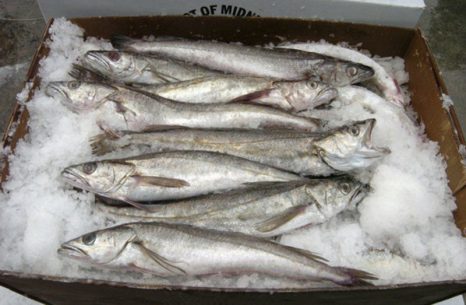
Amendment 22: Lack of action on whiting pleases most local fishermen
The New England Fishery Management Council on Tuesday didn’t appear to have much interest in limiting future access to the whiting fishery that includes Ipswich Bay. “It’s a victory of sorts,” said longtime Gloucester fisherman Al Cottone, who also is the executive director of the city’s Fisheries Commission. “It showed that the council really has no appetite for limiting access to the whiting fishery.” The proposal, developed by the council’s whiting committee during the formation of proposed Amendment 22, still will include the option of limiting access when it goes out to public comment at some point this winter.,, Cottone, along with fellow Gloucester fishermen Joe Orlando and Russell Sherman, spoke in opposition to limiting access to the fishery,, click here to read the story 09:15
New England Fishery Management Council meeting in Gloucester, Sept. 26th thru 28th
 The New England Fishery Management Council will be meeting at the Beauport Hotel in Gloucester. To read the final agenda, click here Register click here to listen live via webinar. 17:40
The New England Fishery Management Council will be meeting at the Beauport Hotel in Gloucester. To read the final agenda, click here Register click here to listen live via webinar. 17:40
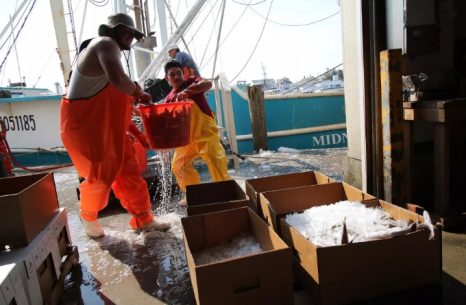
Something fishy in the quotas?
The clatter reverberated in the refrigerated cold as workers offloaded fish and wheeled full bins into a storage area on Fisherman’s Wharf. The catch was sorted, weighed, labeled, and eventually loaded onto large trucks headed for New York. It was a big haul, but not a big payday for Tom Testaverde Jr., captain of the Midnight Sun. “Our season’s been good. We caught a lot of fish, but the prices have been killing us all year,” Testaverde said. He pointed to imports that drive prices down, and regulations that limit what kinds of fish he can catch. Those federal limits on some species — particularly groundfish such as cod and flounder — are at odds with what commercial fishermen say they are seeing in the ocean. click here to read the story 14:34
Conservation Law Foundation submits victim impact statement in Carlos Rafael case
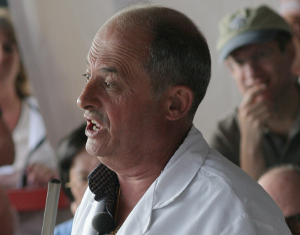 Within the past 10 days, the Conservation Law Foundation sent three letters to various individuals involved — either directly or indirectly — with the Carlos Rafael case. The foundation doesn’t represent any party directly, but its goal is to “use the law, science and the market to create solutions that preserve our natural resources, build healthy communities, and sustain a vibrant economy,” according to its website. CLF sees Rafael’s guilty plea in March to illegal fishing as infringing on its principles. click here to read the story 21:18
Within the past 10 days, the Conservation Law Foundation sent three letters to various individuals involved — either directly or indirectly — with the Carlos Rafael case. The foundation doesn’t represent any party directly, but its goal is to “use the law, science and the market to create solutions that preserve our natural resources, build healthy communities, and sustain a vibrant economy,” according to its website. CLF sees Rafael’s guilty plea in March to illegal fishing as infringing on its principles. click here to read the story 21:18
New England Fishery Management Council meeting in Portland, Me. June 20 thru 22, 2017
 The New England Fishery Management Council will be meeting at the Holiday Inn by the Bay, Portland, ME., June 20, 2017 –
The New England Fishery Management Council will be meeting at the Holiday Inn by the Bay, Portland, ME., June 20, 2017 –
June 22, 2017 To read the final agenda, click here Register click here to listen live via webinar. 16:52
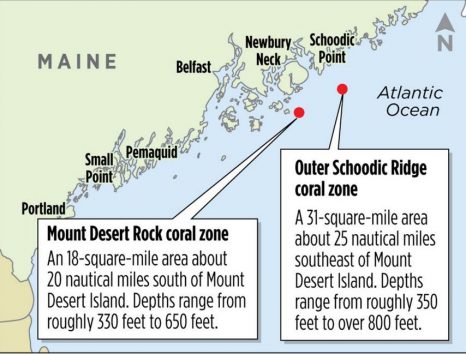
Maine lobstermen worry about possible closure to protect coral
Charles Kelley began fishing for lobster on Outer Schoodic Ridge about 20 years ago, preferring the solitude of deep waters to the crowded inshore fishery.,, Kelley is worried that he could lose his winter fishing territory if interstate regulators decide to ban all fishing in a 31-square-mile area at the ridge and an 18-square-mile area southwest of Mount Desert Rock to protect deep-water coral gardens found in those waters.,,, Some environmental groups have banded together to oppose the lobster exemption, among other aspects of the proposal, including the Conservation Law Foundation, Natural Resources Defense Council, Oceana and The Pew Charitable Trusts. “Heavy offshore trap gear … poses a threat to long-lived and vulnerable deep-sea coral communities,” they wrote in an April 11 letter. “Trap fisheries directly damage corals.” Click here to read the story 07:58
As I see It: More US action required on New England fishery – Congressman Raúl M. Grijalva
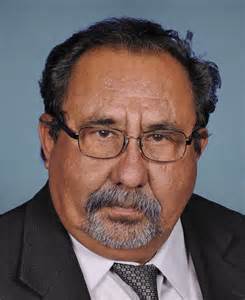 On March 30, Carlos Rafael – the infamous “Codfather” of New Bedford, Massachusetts – pleaded guilty to federal fraud charges.,,, His fraud in mislabeling nearly 800,000 pounds of fish to evade quotas on cod, flounder and sole was so massive that scientific studies using the misreported landings may have to be scrapped, adding additional uncertainty to a fishery that has been teetering on the edge of complete collapse for decades.,,, The Fisheries Service must also start saying ‘no’ to the New England Fishery Management Council, a regional regulatory body that includes many industry representatives.,,,It’s time to end the convenient and false narratives that blame science-based fisheries regulations and ocean conservation initiatives, such as the Northeast Canyons and Seamounts Marine National Monument on the edge of the continental shelf off Cape Cod, for problems they did not create. Click here to read the op-ed 09:41
On March 30, Carlos Rafael – the infamous “Codfather” of New Bedford, Massachusetts – pleaded guilty to federal fraud charges.,,, His fraud in mislabeling nearly 800,000 pounds of fish to evade quotas on cod, flounder and sole was so massive that scientific studies using the misreported landings may have to be scrapped, adding additional uncertainty to a fishery that has been teetering on the edge of complete collapse for decades.,,, The Fisheries Service must also start saying ‘no’ to the New England Fishery Management Council, a regional regulatory body that includes many industry representatives.,,,It’s time to end the convenient and false narratives that blame science-based fisheries regulations and ocean conservation initiatives, such as the Northeast Canyons and Seamounts Marine National Monument on the edge of the continental shelf off Cape Cod, for problems they did not create. Click here to read the op-ed 09:41
Series of coral protection hearings planned for New England
 Federal fishery managers will hold a host of public hearings in New England and New York about a plan to protect corals in key East Coast fishing areas. The New England Fishery Management Council is hosting seven public hearings about alternatives it is considering about the protection of corals in the Gulf of Maine and Georges Bank. The hearings will take place from May 22 to 25 in Montauk, Narragansett, New Bedford, Gloucester, Portsmouth, and Ellsworth. There will also be a web-based hearing on May 26. The fishery council says it wants to collect feedback from fishermen and other stakeholders about the coral protection Link 21:28
Federal fishery managers will hold a host of public hearings in New England and New York about a plan to protect corals in key East Coast fishing areas. The New England Fishery Management Council is hosting seven public hearings about alternatives it is considering about the protection of corals in the Gulf of Maine and Georges Bank. The hearings will take place from May 22 to 25 in Montauk, Narragansett, New Bedford, Gloucester, Portsmouth, and Ellsworth. There will also be a web-based hearing on May 26. The fishery council says it wants to collect feedback from fishermen and other stakeholders about the coral protection Link 21:28
Cape fishermen and environmentalists push to protect herring stocks from “Localized Depletion”
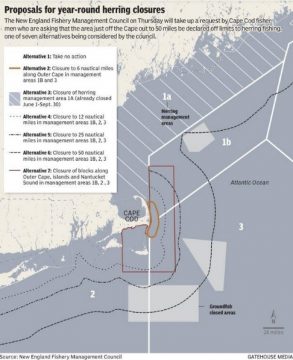 Local fishermen are hoping the New England Fishery Management Council will help protect tuna and other fisheries from the herring fleet by agreeing to have measures asking for year-round closures of up to 50 miles east of the Cape analyzed and included during a vote expected later this year. The council is meeting in Mystic, Connecticut, today through Thursday, when the board will work on herring regulations. “There’s a strong feeling that fisheries that used to happen here have been displaced by 10 years of intense herring removal,” said John Pappalardo, executive director of the Cape Cod Commercial Fishermen’s Alliance, and a member of the New England council and its herring committee. “The haddock resource is robust, but there’s no meaningful haddock fishery close to shore.” Localized Depletion. Are they not considering that with the squid fishery too? Oh yes they are! click here to read the story 08:08
Local fishermen are hoping the New England Fishery Management Council will help protect tuna and other fisheries from the herring fleet by agreeing to have measures asking for year-round closures of up to 50 miles east of the Cape analyzed and included during a vote expected later this year. The council is meeting in Mystic, Connecticut, today through Thursday, when the board will work on herring regulations. “There’s a strong feeling that fisheries that used to happen here have been displaced by 10 years of intense herring removal,” said John Pappalardo, executive director of the Cape Cod Commercial Fishermen’s Alliance, and a member of the New England council and its herring committee. “The haddock resource is robust, but there’s no meaningful haddock fishery close to shore.” Localized Depletion. Are they not considering that with the squid fishery too? Oh yes they are! click here to read the story 08:08
You can listen to all the council action by clicking these links. To read the final agenda, click here Register click here to listen live via webinar.
Withdraw Unlawful Plan Forcing Fishermen to Pay for At-Sea Monitors – Cause of Action Institute
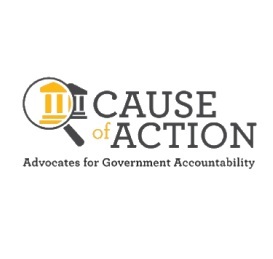 Cause of Action Institute (“CoA Institute”) has submitted a regulatory comment to the New England Fishery Management Council (“NEFMC”) questioning the Council’s legal authority to move forward a controversial amendment that would force more fishermen to pay for costly at-sea monitors, which are the government’s responsibility. CoA Institute advised the NEFMC to abandon the Omnibus Amendment, which would imperil an already hard-hit fishing industry by requiring certain fishermen to pay for monitors to police their at-sea activity. The plan would also open more regional Atlantic fisheries to industry-funded monitors. “The Omnibus Amendment is unlawful and will make it virtually impossible for countless small-business fishermen to pursue their livelihood,” said Julie Smith, CoA Institute Vice President. “Many of these fishermen come from families that have fished American coastal waters for generations. The federal government should not regulate them out of business. Congress has not authorized it and the economic consequences are too dire. If an agency lacks statutory authority or appropriated funds, it has no power to act. The New England Council should withdraw the Omnibus Amendment.” The cost for a monitor under the amendment is expected to range from $710 to $818 per day at sea. That would exceed the revenue a fisherman typically lands from his daily catch. CoA Institute represents fishermen challenging another industry-funded monitoring program in the Northeast groundfish fishery. In that case, a government study predicted that industry-funded monitoring would result in up to 60 percent of mostly small-scale vessels going out of business—a result that the government blithely characterized as a “restructuring” of the groundfish fleet. Learn more about the case HERE 14:00
Cause of Action Institute (“CoA Institute”) has submitted a regulatory comment to the New England Fishery Management Council (“NEFMC”) questioning the Council’s legal authority to move forward a controversial amendment that would force more fishermen to pay for costly at-sea monitors, which are the government’s responsibility. CoA Institute advised the NEFMC to abandon the Omnibus Amendment, which would imperil an already hard-hit fishing industry by requiring certain fishermen to pay for monitors to police their at-sea activity. The plan would also open more regional Atlantic fisheries to industry-funded monitors. “The Omnibus Amendment is unlawful and will make it virtually impossible for countless small-business fishermen to pursue their livelihood,” said Julie Smith, CoA Institute Vice President. “Many of these fishermen come from families that have fished American coastal waters for generations. The federal government should not regulate them out of business. Congress has not authorized it and the economic consequences are too dire. If an agency lacks statutory authority or appropriated funds, it has no power to act. The New England Council should withdraw the Omnibus Amendment.” The cost for a monitor under the amendment is expected to range from $710 to $818 per day at sea. That would exceed the revenue a fisherman typically lands from his daily catch. CoA Institute represents fishermen challenging another industry-funded monitoring program in the Northeast groundfish fishery. In that case, a government study predicted that industry-funded monitoring would result in up to 60 percent of mostly small-scale vessels going out of business—a result that the government blithely characterized as a “restructuring” of the groundfish fleet. Learn more about the case HERE 14:00






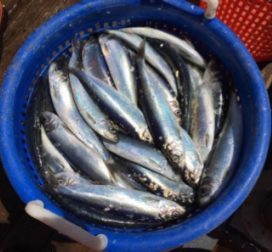

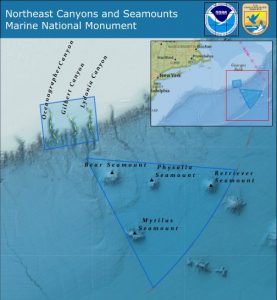 New England fishery regulators might seek to reclaim some of the authority they lost when President Barack Obama virtually walled off thousands of square miles of ocean south of Cape Cod to commercial fisheries. On Tuesday, the New England Fisheries Management Council’s Habitat Committee recommended that the regulatory council provide feedback to the Trump administration about the designation of the 4,913 square-mile area by the continental shelf. “I would strongly suggest we take the opportunity to comment,” said Eric Reid, a council member and the general manager of Seafreeze Shoreside, a seafood processing facility in Galilee, Rhode Island. While the committee members did not delve into what the letter should say during Tuesday’s meeting, the council chairman, former Rep. John Quinn, the director of public interest at the UMass School of Law in Dartmouth, made clear he believes the council should have jurisdiction.
New England fishery regulators might seek to reclaim some of the authority they lost when President Barack Obama virtually walled off thousands of square miles of ocean south of Cape Cod to commercial fisheries. On Tuesday, the New England Fisheries Management Council’s Habitat Committee recommended that the regulatory council provide feedback to the Trump administration about the designation of the 4,913 square-mile area by the continental shelf. “I would strongly suggest we take the opportunity to comment,” said Eric Reid, a council member and the general manager of Seafreeze Shoreside, a seafood processing facility in Galilee, Rhode Island. While the committee members did not delve into what the letter should say during Tuesday’s meeting, the council chairman, former Rep. John Quinn, the director of public interest at the UMass School of Law in Dartmouth, made clear he believes the council should have jurisdiction. 

























